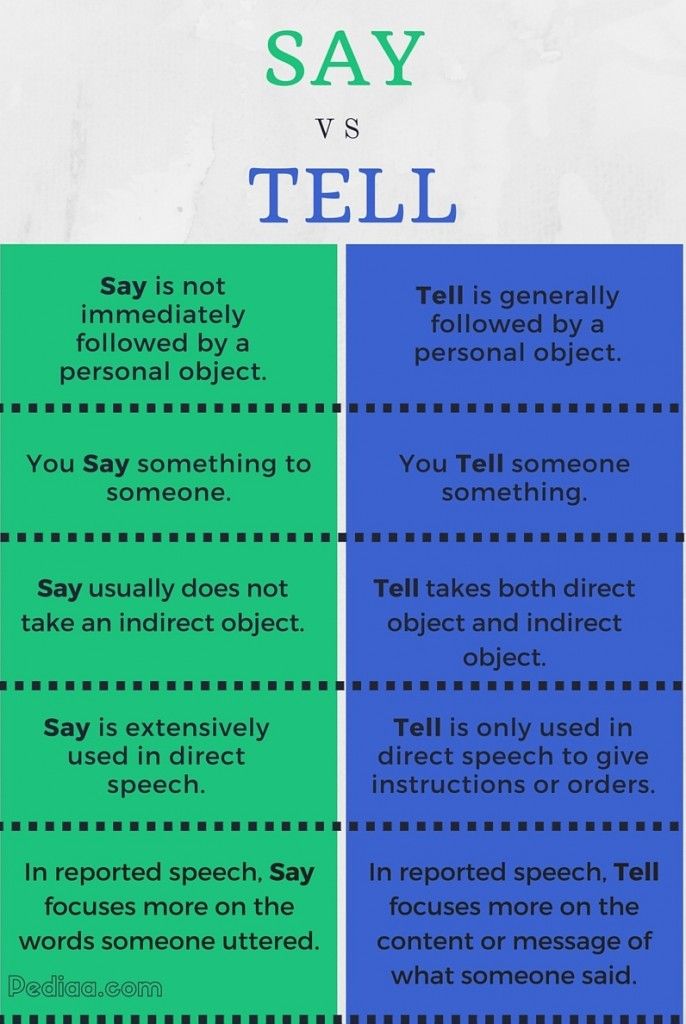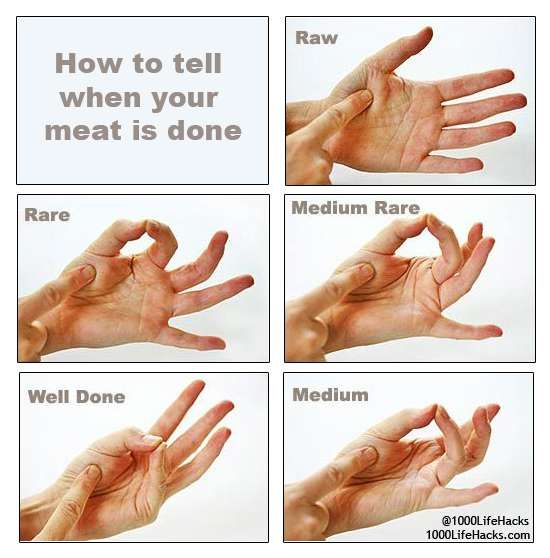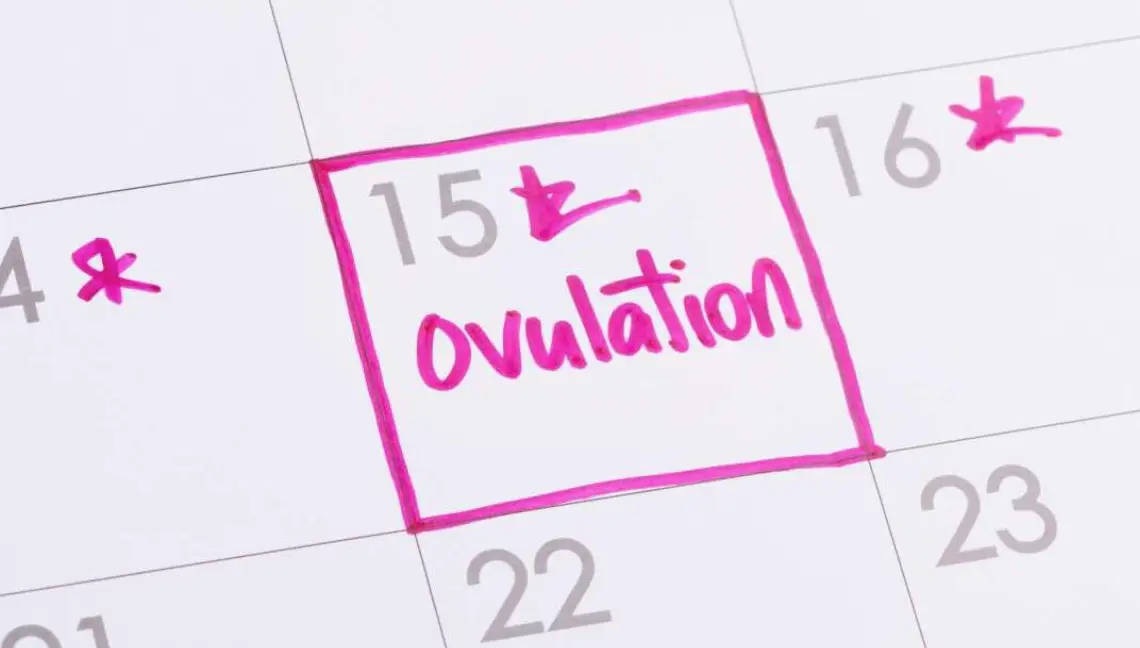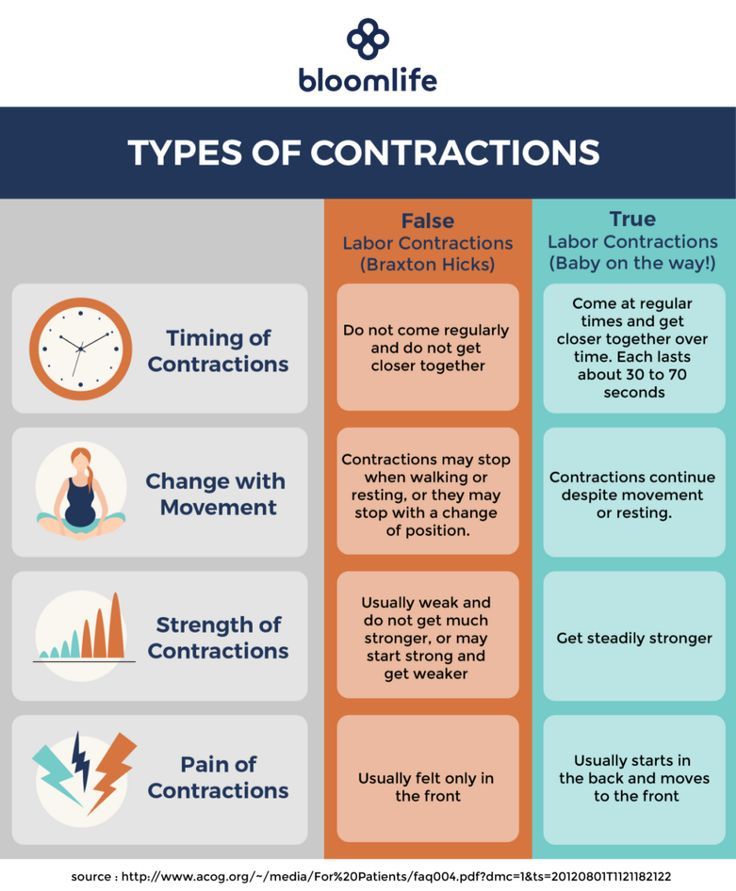When to tell
When to tell people you are pregnant
When to tell people you are pregnant | Pregnancy Birth and Baby beginning of content5-minute read
Listen
For many women, choosing the right time to tell family and friends that they are pregnant is hard. There is no right answer. But there are several things you may wish to think about when making this decision.
Ask yourself the questions below to help work out what’s right for you.
Who should I tell first?
If you have a partner, the decision about who to tell, as well as when and how, is best made with them.
In many ways, it may be harder to tell close family and friends that you are pregnant than people you do not know as well. So, it may be worth planning who you will tell first about your pregnancy and how you will do it.
You may decide you want to tell your family and close friends first. Then they will be available to provide support as early as possible.
How do I tell them?
Close friends and family may prefer to be told personally.
It’s worth remembering that if you announce your pregnancy on social media, you may have little control over who views your announcement and when. These public announcements may draw significant attention, personal stories, and advice, which may or may not be invited and/or wanted.
How do I tell someone who’s infertile or lost a baby?
When you tell people you are pregnant, your friends and family will almost certainly be very happy for you. But some people may not be able to show their happiness for you as enthusiastically as others. Those who have lost a baby, or are having trouble getting pregnant may find the news difficult.
It may help to tell these friends in private and before you tell others, letting them know you realise your news may not be easy for them.
What if I tell people I’m pregnant and then have a miscarriage?
Many women choose to delay announcing a pregnancy at least until the end of the first trimester (12 weeks into their pregnancy). This is usually because of concerns about the risk of miscarriage (pregnancy loss) during this time.
When deciding the right time to tell people you are pregnant, you might want to think about how you would handle a miscarriage were it to happen. Many people would consider a miscarriage so devastating that they would be too distressed to discuss it with others.
On the other hand, by telling people you are pregnant, support may be available in the event of a miscarriage.
When should I tell my employer that I’m pregnant?
Unless your doctor has told you it is unsafe, it is possible to work while you are pregnant.
There is no law saying you need to tell your employer at any specific time that you are pregnant. But both Australian law and your employment contract, agreement or award (if you have one) will include certain rights and responsibilities.
You need to give your employer at least 10 weeks notice if you are planning to take parental leave. You must give them written notice of your leave and return dates. These dates should be confirmed at least 4 weeks before your leave starts.
It’s a good idea to tell your employer you are pregnant before they hear it from somebody else. That’s because there may have to be some changes made to your working arrangements. For example, you may have to avoid certain tasks that are a health and safety risk, depending on what your work involves.
In Australia, you are protected by law against discrimination during pregnancy. That means you cannot be treated unfairly because you are pregnant. This means you can’t be sacked, given fewer hours, or overlooked for a promotion because you are pregnant.
When should I tell my colleagues?
Early in your pregnancy you may experience symptoms such as tiredness or morning sickness. You may also need to take time off for appointments.
This could affect both your personal and working relationships with your co-workers if they don’t know why it’s happening. It’s often a good idea to tell your co-workers you are pregnant once you have told your boss.
A workplace can offer significant personal support during pregnancy. It may be especially valuable should you experience pregnancy complications.
Speak to a maternal child health nurse
Call Pregnancy, Birth and Baby to speak to a maternal child health nurse on 1800 882 436 or video call. Available 7am to midnight (AET), 7 days a week.
Sources:
Raising Children (Pregnancy and work: women's rights and entitlements), Fair Work Ombudsman (Maternity and parental leave), The Royal Women's Hospital (Miscarriage)Learn more here about the development and quality assurance of healthdirect content.
Last reviewed: May 2022
Back To Top
Need more information?
Working while pregnant: tips | Raising Children Network
Working while pregnant can be challenging. Get practical tips for managing pregnancy symptoms, working through pregnancy and planning your return to work.
Get practical tips for managing pregnancy symptoms, working through pregnancy and planning your return to work.
Read more on raisingchildren.net.au website
Pregnancy tests
Find out how a home pregnancy test works.
Read more on Pregnancy, Birth & Baby website
Pregnancy & work: rights & entitlements | Raising Children Network
Pregnant and working? Read this article for essential information on pregnancy and work, workplace rights, work duties, parental and maternity leave.
Read more on raisingchildren.net.au website
Working during pregnancy
UnIess your doctor tells you it is unsafe, it is possible to work while pregnant. Get some tips on managing and making adjustments to your work and career.
Get some tips on managing and making adjustments to your work and career.
Read more on Pregnancy, Birth & Baby website
Working through Pregnancy
COPE's purpose is to prevent and improve the quality of life of those living with emotional and mental health problems that occur prior to and within the perinatal period.
Read more on COPE - Centre of Perinatal Excellence website
Pregnant? Working through your options | Family Planning NSW
A booklet for people who have an unintended pregnancy (or those who work with them) and are unsure of what to do.
Read more on Family Planning NSW website
Returning to work
When a parent decides to return to work after having a baby, it can mean a big adjustment. Get some practical tips around child care and flexible working that can help inform your decision.
Get some practical tips around child care and flexible working that can help inform your decision.
Read more on Pregnancy, Birth & Baby website
Travelling during Pregnancy
Many women will travel during pregnancy for work, recreation and visiting friends and relatives. In general, the second trimester is the safest and most comfortable time to travel. The chance of miscarriage is very small, nausea and vomiting are likely to have settled and physical constraints have not yet begun to limit your movement.
Read more on RANZCOG - Royal Australian and New Zealand College of Obstetricians and Gynaecologists website
Child disability, mums & work-life balance | Raising Children Network
Watch this video to hear mums of children with disability talk about returning to work and finding a work-life balance. Mums also share practical tips.
Mums also share practical tips.
Read more on raisingchildren.net.au website
Returning to work - COPE
COPE's purpose is to prevent and improve the quality of life of those living with emotional and mental health problems that occur prior to and within the perinatal period.
Read more on COPE - Centre of Perinatal Excellence website
Disclaimer
Pregnancy, Birth and Baby is not responsible for the content and advertising on the external website you are now entering.
OKNeed further advice or guidance from our maternal child health nurses?
1800 882 436
Video call
- Contact us
- About us
- A-Z topics
- Symptom Checker
- Service Finder
- Linking to us
- Information partners
- Terms of use
- Privacy
Pregnancy, Birth and Baby is funded by the Australian Government and operated by Healthdirect Australia.
Pregnancy, Birth and Baby is provided on behalf of the Department of Health
Pregnancy, Birth and Baby’s information and advice are developed and managed within a rigorous clinical governance framework. This website is certified by the Health On The Net (HON) foundation, the standard for trustworthy health information.
This site is protected by reCAPTCHA and the Google Privacy Policy and Terms of Service apply.
This information is for your general information and use only and is not intended to be used as medical advice and should not be used to diagnose, treat, cure or prevent any medical condition, nor should it be used for therapeutic purposes.
The information is not a substitute for independent professional advice and should not be used as an alternative to professional health care. If you have a particular medical problem, please consult a healthcare professional.
Except as permitted under the Copyright Act 1968, this publication or any part of it may not be reproduced, altered, adapted, stored and/or distributed in any form or by any means without the prior written permission of Healthdirect Australia.
Support this browser is being discontinued for Pregnancy, Birth and Baby
Support for this browser is being discontinued for this site
- Internet Explorer 11 and lower
We currently support Microsoft Edge, Chrome, Firefox and Safari. For more information, please visit the links below:
- Chrome by Google
- Firefox by Mozilla
- Microsoft Edge
- Safari by Apple
You are welcome to continue browsing this site with this browser. Some features, tools or interaction may not work correctly.
When Is the Best Time to Announce Pregnancy?
When Is the Best Time to Announce Pregnancy?Medically reviewed by Deborah Weatherspoon, Ph.D., MSN — By Ashley Marcin on December 6, 2018
Announcing your pregnancy
One of the most exciting times in your pregnancy is getting that first positive test. You probably want to tell the whole world you’re expecting. But when is the best time to announce your pregnancy?
But when is the best time to announce your pregnancy?
Many parents-to-be wait until the end of the first trimester — around week 13 — to tell friends and family about their pregnancy. A number of factors influence why people wait until this time to share the news.
Still, the most important part of your decision should revolve around what makes you the most comfortable. Read on to find out more about what to consider before you decide to announce your pregnancy.
The risk of miscarriage
The first trimester is a tremendous time of development and change for you and your little one. With all that change comes some risk that the pregnancy might not carry to term.
Between 10 and 25 percent of known pregnancies end in miscarriage, and roughly 80 percent of these miscarriages occur in the first trimester.
Most miscarriages are caused by factors beyond a mother’s control. About half are caused by chromosomal abnormalities. This means that the baby doesn’t develop properly.
Other causes of first trimester miscarriage include:
- illness in mother
- luteal phase defect (problem with a woman’s monthly cycle)
- hormone imbalances
- adhesions (scar-like tissue) in uterus
Age is another factor that affects miscarriage. Here is the miscarriage risk by age:
- Women ages 35 and under: 15 percent
- Women ages 35 to 45: 20 to 35 percent
- Women ages 45 and older: 50 percent
If a developing baby lives to 7 weeks with a heartbeat, the risk of miscarriage drops to 10 percent. In those beginning weeks when the risk is highest, you may not even know you’re pregnant unless you’ve taken an early test. After week 12, the risk of miscarriage falls to 5 percent for the rest of the pregnancy.
Given these statistics, it’s understandable that many parents wait until the risk of miscarriage drops before they announce. Most women don’t want to have to tell people the sad news of a miscarriage shortly after announcing their pregnancy.
The first prenatal visit
Another reason couples wait until the end of the first trimester to share has to do with prenatal checkups. Your first appointment may be around week 8 of pregnancy, or even later.
During the first visit, your provider will run tests to confirm your pregnancy, estimate your due date, screen for infections, and determine the general health of you and your baby.
For some couples, hearing that heartbeat for the first time or having an ultrasound to date the pregnancy is reassuring before announcing it to everyone.
Recurrent pregnancy loss
If you’ve experienced a previous loss, your risk of having another miscarriage may be slightly higher, depending on your health history.
This news can be disheartening, especially in the case of recurrent pregnancy loss (RPL). Your doctor will likely examine you, order blood tests, and do some other testing to determine the cause of your losses.
The good news is that with the right treatment, your chances of carrying a baby to term may increase. But you might feel more comfortable waiting until after this treatment to announce your pregnancy to everyone.
But you might feel more comfortable waiting until after this treatment to announce your pregnancy to everyone.
The pros of waiting to announce your pregnancy
If you’ve had difficulty conceiving, had a previous pregnancy loss, or had a stillbirth, you may want to wait even longer than 12 weeks to share news of your pregnancy. It’s also fine to share later than the traditional first trimester cutoff. It’s entirely up to you and what you feel is best.
Though loss in the second and third trimesters is rare, couples may feel sensitive or worried that something will happen.
In these cases, you may choose to share news about the following instead:
- having an ultrasound that shows the baby is healthy
- finding out the sex of the baby
- reaching the halfway mark of pregnancy (week 20)
- reaching a personal milestone (e.g., when you start showing)
Sometimes letting a close friend or family member know can be helpful, especially if you’re feeling anxious.
If you’re still not comfortable sharing the news, your doctor may be able to refer you to a therapist or support group where you can express your feelings in a safe space.
Another option is to search online for forums with women who have gone through similar situations. Examples of online support groups include:
- Pregnancy After Loss Support
- Subsequent Pregnancy After Loss Support
Pros of Waiting
- The risk of miscarriage usually decreases after the first trimester.
- You might feel more comfortable after you’ve had an ultrasound, heard your baby’s heartbeat, or reached a pregnancy milestone.
- There’s anonymity for you and your partner.
The cons of waiting to share the news
If you’d rather have a support network in place regardless of your pregnancy outcome, feel free to share the news right away.
The first trimester may be tough for some women because of fatigue, nausea, vomiting, and other unpleasant symptoms. Letting a few key people know may help ease the burden. And if you do end up miscarrying, you might not want to have to go through it alone.
Letting a few key people know may help ease the burden. And if you do end up miscarrying, you might not want to have to go through it alone.
You may also want to tell your employer about your pregnancy right away if your job requires you to do physical labor that might be dangerous. These hazards might include:
- bending repeatedly at your waist (more than 20 times per day)
- standing for long periods of time
- lifting heavy things, like boxes, more than once every five minutes
- being exposed to chemicals
Your job may require these tasks. The data isn’t concrete on whether or not these activities directly lead to miscarriage, but it’s still worth considering in the overall picture. Speak with your doctor about the recommendations for lifting during pregnancy for more specifics.
Cons of Waiting
- The first trimester might be difficult without support.
- You might be exposed to workplace hazards if you don’t tell your employer.

- Friends and family might find out from other sources instead of you telling them directly.
Announcing to different groups
It might make sense to announce your pregnancy to different groups at different times. You may want to first tell a few close family members and then some friends before you announce it publicly on social media or tell your co-workers.
Family
Consider telling only your family to start. Your pregnancy will be major news for your parents, especially if this is their first grandchild. You might want to think of a creative way to tell your mother, father, and siblings so you can be there to witness their reaction firsthand.
If you choose to announce to just your family early on in your pregnancy, you’ll have plenty of people to celebrate with, but you won’t have to explain things over and over again if something does go wrong.
Friends
You’ll most likely want to tell your closest friends first. Then, whenever you feel more comfortable, you can broaden the group, or make an official announcement on social media. But be aware that the news might slip out of even the most well-meaning friend or relative.
But be aware that the news might slip out of even the most well-meaning friend or relative.
Social networking is probably the easiest way to get the news out to friends and family who live far away. Posting a picture online of your ultrasound can get the news out in an instant.
Employer
You will have to tell your employer sooner or later, especially if you’re going to be taking parental leave or time off work. As mentioned above, it’s a good idea to tell your workplace right away if your job involves physical labor that might be dangerous.
Once your employer knows of your pregnancy, you’re protected against discrimination under the Pregnancy Discrimination Act of 1978. Your employer is required to provide you with reasonable accommodation if you’re unable to perform your work activities safely while pregnant.
If your job doesn’t involve physical labor, you can wait until you’re comfortable letting them know. Just make sure you give your employer a reasonable amount of time to prepare for your time away.
You will most likely want to tell your direct manager first so you two can plan together how to tell others you work with. It’s completely fine to ask your manager to keep this information confidential until you’re ready to tell others.
If you don’t want to inform your immediate superior right away, feel free to meet with your company’s human resources department to discuss your options. Be prepared to discuss their concerns about how your pregnancy will affect your job.
Being professional and prepared will help reassure your workplace of your commitment to making this a smooth transition.
What should you do?
In the end, the choice over when to share your pregnancy is entirely up to you. You can tell friends and family right away, or wait until you know more about the health of you and your baby.
To help make your decision, you may want to ask yourself these questions:
- Do I have a high-risk pregnancy or other factors that increase my miscarriage risk?
- Will telling everyone make me feel more comfortable, or less comfortable?
- Do I have certain work or lifestyle factors that make telling sooner important?
- Do I want a large network of support if something happens?
The takeaway
The beginning of pregnancy can be both exciting and frightening. Try to relax and enjoy the journey.
Try to relax and enjoy the journey.
A lot of women choose to announce their pregnancy at the end of the first trimester because the risk of miscarriage is greatly reduced and their pregnancy “bump” may no longer be easy to hide. Of course, announcing at the 12-week mark isn’t required and the choice is entirely up to you.
Whether or not you tell the whole world right away, make sure to tell your doctor if you’re pregnant or trying to get pregnant. Schedule a prenatal appointment, take your vitamins, and keep up with good eating and exercise habits.
Try to take care of yourself and your baby-to-be. No matter when you share the news, it’ll surely be reason to celebrate.
Share on Pinterest
Last medically reviewed on December 6, 2018
- Parenthood
- Pregnancy
- 1st Trimester
How we vetted this article:
Healthline has strict sourcing guidelines and relies on peer-reviewed studies, academic research institutions, and medical associations. We avoid using tertiary references. You can learn more about how we ensure our content is accurate and current by reading our editorial policy.
We avoid using tertiary references. You can learn more about how we ensure our content is accurate and current by reading our editorial policy.
- Mayo Clinic Staff. (2013). Miscarriage.
mayoclinic.org/diseases-conditions/pregnancy-loss-miscarriage/symptoms-causes/syc-20354298 - Miscarriage. (2015).
americanpregnancy.org/pregnancy-complications/miscarriage/ - Miscarriage. (2017).
marchofdimes.org/complications/miscarriage.aspx - Reproductive health and the workplace. (2015).
cdc.gov/niosh/topics/repro/physicaldemands.html - Second trimester pregnancy loss. (2007).
aafp.org/afp/2007/1101/p1341.html - Your first prenatal visit. (2015).
americanpregnancy.org/planning/first-prenatal-visit/
Our experts continually monitor the health and wellness space, and we update our articles when new information becomes available.
Current Version
Dec 6, 2018
By
Ashley Marcin
Edited By
Nizam Khan (TechSpace)
Medically Reviewed By
Deborah Weatherspoon, Ph. D., MSN
D., MSN
Share this article
Medically reviewed by Deborah Weatherspoon, Ph.D., MSN — By Ashley Marcin on December 6, 2018
related stories
When You Should Take a Pregnancy Test
Can I Tell If I’m Pregnant Before I Miss My Period?
The First Trimester of Pregnancy
What to Expect at 1 Month Pregnant
Can I Take a Pregnancy Test at Night?
Read this next
When You Should Take a Pregnancy Test
Medically reviewed by Nancy Carteron, M.D., FACR
Trying to figure out if you need to take a pregnancy test? These five important signs will help you decide.
READ MORE
Can I Tell If I’m Pregnant Before I Miss My Period?
Medically reviewed by Debra Sullivan, Ph.D., MSN, R.N., CNE, COI
While some women do experience pregnancy symptoms earlier than others, the only way to confirm a pregnancy is with a test.
 Here's what you need to…
Here's what you need to…READ MORE
The First Trimester of Pregnancy
Medically reviewed by Debra Rose Wilson, Ph.D., MSN, R.N., IBCLC, AHN-BC, CHT
Understanding a pregnancy week by week can help you make informed decisions and prepare for the big changes that lie ahead.
READ MORE
What to Expect at 1 Month Pregnant
Medically reviewed by Joshua Copel, MD
At 1 month pregnant, your belly may already be a little swollen — but it's more likely to be bloat than baby. Here's what else to expect at this stage.
READ MORE
Can I Take a Pregnancy Test at Night?
Medically reviewed by Amanda Kallen, MD
When pregnancy is possible, it‘s natural to want to know — now. So can you take a pregnancy test at night and get accurate results? Here‘s what you…
READ MORE
The State of Fertility Report 2017
Medically reviewed by Aimee Eyvazzadeh, MD, MPH
As featured on Good Morning America, we examine expert opinions and survey data in a comprehensive overview of the current fertility landscape in 2017.

READ MORE
The Best Parkinson’s Disease Blogs of 2021
The exact cause of Parkinson’s disease is unknown. Until a cure is found, a vast online network exists to help those living with Parkinson’s, and…
READ MORE
Healthy Sex for Women
Medically reviewed by Emelia Arquilla, DO
For women, sexual health significantly impacts overall health. Practicing safe sex, using contraception properly, and getting screened regularly for…
READ MORE
The Best Women’s Health Books of the Year
From navigating a healthy diet to your mental health, these books will help shed some light on the complex world of women's health.
READ MORE
Does Swaddling Increase the Risk of SIDS?
Medically reviewed by Mia Armstrong, MD
Is swaddling safe, or is it a risk factor for SIDS? Here's what the most recent research says.

READ MORE
When to tell a child that he is adopted?
When I say I've been adopted, there is usually a predictable reaction. At first, the interlocutor blinks rapidly, then quickly apologizes for his question that preceded my confession (whether my dad was tall, or who gave me such an even skin color). This is followed by repetitive questions about whether I know my biological parents, how old I was when I was adopted. And almost everyone is interested in when exactly I found out that my parents were not my relatives. While the former questions seek to understand the circumstances under which I joined my family, the latter examines how the family dealt with the consequences of this event. In fact, people are interested in whether I was deceived as a child.
I always answer that my parents made sure that I grew up knowing my origins. Together we looked at an album of photographs and memories, including the day I was picked up from an adoption agency in Tennessee. My older brother gave me a bottle and kissed me the first time I was driving home in my car seat.
My older brother gave me a bottle and kissed me the first time I was driving home in my car seat.
There are many studies on the psychological consequences of adoption and children's understanding of this phenomenon. However, Amanda Baden, a professor at the Montclair State University Graduate Counseling Program, after studying these questions for twenty-five years, was surprised to find how little is known about the age at which people find out they have been adopted and how this age affects their later life.
When is the best time to tell a child that he/she is adopted? This question has been the subject of debate among experts for decades. For much of the twentieth century, parents preferred either not to tell their adopted child about their parentage at all, or to do so many years later, in adolescence or adulthood. The most common recommendation today is to tell the adoption story to the child as early as possible. Otherwise, he will find that his parents have been lying to him or misleading him for a long time.
To prove this, Amanda Baden and her team interviewed 254 people aged 24 to 78 who were adopted before the age of one. Each participant completed a questionnaire that assessed levels of life satisfaction, day-to-day stress, and coping skills. The questionnaire also included several open-ended questions that shed light on how the respondents learned about the adoption. The researchers found that those who learned about it before age two were generally more satisfied with their lives than those who were told after age three or older.
These results confirmed the opinion of Prof. Baden, who was herself an adopted child. Late discovery adoption is something that everyone else, except the baby, already knows. When a child discovers that parents, grandparents, and even siblings have deliberately kept this information from him, revealing his own status becomes painful.
A fifty-four-year-old woman who learned she was adopted five years ago remarks: “Now I am more careful in every aspect. Finding out that everyone knew and I didn't was the most traumatic experience of my life." A 49-year-old woman who was told she was adopted at 18 recalls: “I started stealing from my parents because of anger, resentment, and feelings of betrayal.”
Finding out that everyone knew and I didn't was the most traumatic experience of my life." A 49-year-old woman who was told she was adopted at 18 recalls: “I started stealing from my parents because of anger, resentment, and feelings of betrayal.”
Of course, other factors can influence the results of a study like the Baden study. David Brodzinski, Distinguished Professor of Clinical Psychology at Rugers University and a longtime student of adoption, wonders how much research can rely on the memories of those who claim to have learned of their adoption at a very early age. While many people do have memories of early childhood, he notes, “Most people don't have credible memories of life before the age of 3 or 4. What we think we remember up to that age is often the result of stories our parents and other family members tell us.” So when an adopted person says that they learned about their adoption as an infant, or that they always knew they were adopted, it may not mean that they were told about it before the age of three.
Brodzinski also raises the issue that early disclosure of adoption information may also be a sign of a generally more open, trusting parent-child relationship, which in turn leads to better mental health and well-being. It is perhaps this atmosphere in the family that affects well-being more than the actual age of disclosure of information about adoption, it is this atmosphere that determines the mental health of a person later.
Late disclosure of adoption information is often the result of parental secrecy. She, in turn, may be associated with feelings of shame, grief, or trauma due to the inability to have a child. According to Amanda Baden, one of the main reasons why people lie or do not tell the whole truth is that they themselves have not come to terms with what happened. She hopes that the results of her research will help counselors in their work with foster families. And while she understands the parents' urge to wait until their children are older to better understand the whole situation, dishonesty between family members has more serious consequences than a temporary misunderstanding or oversimplification of the concept of adoption.
When children are five or six years old, they begin to wonder how they were born. If they are adopted but don't know it yet, parents have to tell things that didn't really happen to keep the kids from talking until they're old enough. In this case, the moment of truth becomes the moment of betrayal. Therefore, the best way to raise adopted children to be mentally healthy and content with life is not to mislead them about their origins.
Even if a child does not fully understand when parents tell him the story of adoption, there is nothing to worry about, says Amanda Baden. Children do not need to understand all the subtleties of how this happens. After all, when reading stories about airplanes to a child, we do not expect him to understand the essence of aerodynamics. All the details fall into place when the child is already growing up.
Author: Ashley Fetters
Translation: Maria Okhotnikova, specially for IRSU
The psychologist said that in no case should one speak to men - Moscow 24, 08/04/2022
good impression. Later, in a stable relationship, people relax emotionally and control over what is said weakens. At this moment, there is a feeling: you can say whatever you want without thinking about the consequences, but this is not so. Psychologist, Gestalt therapist Anna Devyatka talks about how to save your partner's nerves and about stop phrases that ruin relationships.
Later, in a stable relationship, people relax emotionally and control over what is said weakens. At this moment, there is a feeling: you can say whatever you want without thinking about the consequences, but this is not so. Psychologist, Gestalt therapist Anna Devyatka talks about how to save your partner's nerves and about stop phrases that ruin relationships.
Differences in resentment
Photo: depositphotos/Ischukigor
Remember how little girls get offended. They pout, tears flow in hail, but at the same time, the little ones look at the reaction of others - they are waiting to be taken in their hands, sorry and buy a candy to please. Girls have an addressee for resentment - mom, dad, kindergarten teacher or someone else. Naturally, this behavior carries over into adulthood.
Most boys, on the other hand, were not allowed to cry during childhood. So the guys learned to suppress bitterness and anger in themselves so that it was not visible. This repression leads to the fact that men are not used to talking about situations that hurt them. At best, they carry their experiences to the psychologist's office.
At best, they carry their experiences to the psychologist's office.
Most often, only specialists help men figure out what has happened, whether it can be changed, or whether they can immediately prepare for parting so as not to endure injustice towards themselves.
Four stop phrases
Photo: depositphotos/konevaelvira.gmail.com
In fact, men forgive a lot and look at women's chatter through their fingers. Therefore, girls often find out after the fact that there are boundaries that cannot be crossed, since you can greatly offend your loved one.
Provocation of jealousy. According to VTsIOM, 21% of divorces occur due to infidelity or suspicion of its possibility. Men are possessive by nature and are extremely sensitive to stories about past relationships. They begin to get hung up on the thoughts that the girl was dating someone else, count the number of former partners, and so on. Women are sure that in a relationship you need to tell each other everything.
But it happens to girls too. PR manager Marina says that she is very jealous of her husband for his ex-wife when he recalls a past marriage.
He talked a lot about their wedding, how she couldn't get pregnant... I got the impression that he didn't let go of that relationship, although he said he didn't care anymore. I was naturally jealous.
Marina
PR manager
Therefore, psychologists recommend: do not believe in the illusion that you can post all the information that is on your mind. This is not true. People are mentally hurt by some frank words, and many wounds remain for life in the form of a sense of betrayal.
Blackmail by parting. Quite often there is a story when a woman manipulates her departure from the family or kicks a man out of the apartment. The calculation in this situation is that the partner will experience the fear of loss, will beg to stay and run for his beloved.
The head of the IT department, Sergey, notes that such blackmail only causes rejection. “If a man has strong feelings, then any reference to a breakup hurts the most. Girls love to use it, hoping that there will be a man approaching, but in fact it’s the other way around,” he complains.
“If a man has strong feelings, then any reference to a breakup hurts the most. Girls love to use it, hoping that there will be a man approaching, but in fact it’s the other way around,” he complains.
Men already know this manipulation and give women the right to choose: "If you want to leave, please." Therefore, girls have to turn on the trick to annul the situation and return the status quo.
Provocation of humiliation. "I'll do as my dad says, and your opinion doesn't matter to me." This short remark completely demolishes the authority of a man in the family. He comes in second place after the father of the bride. As a result, the spouse gets the feeling that he is not expected, and the role of the head of the family is occupied by someone more significant. The man begins to move away, spend more time outside the home.
A young girl and fiancee Elena have been in a relationship for several years and knows it well. In her opinion, you should not belittle or criticize a man in terms of his role in a couple.
I may have questions, dissatisfaction when he does something in his own way, but I do not understand how and why. But I try to trust and not criticize, otherwise it can discourage the desire to do anything at all.
Elena
bride
Depreciation. The devaluation of the partner often looks like a comparison: "My classmates have achieved more than you" or "I lost the best years of my life with you." The icing on the cake will be the expression: "I'm with you only for the sake of money." By the way, the last phrase has no retroactive effect, and by saying this out loud, a woman loses a man forever.
Surprisingly, by belittling the importance of a partner, girls hope that he will turn on his inner critic, which will motivate him to overcome difficulties. Women's logic in all its glory. Fortunately, not everyone thinks so.
Elena believes that any assessments and comments to close men should be formulated carefully, since we influence their self-esteem more than we think.
Indeed, there are other, more respectful ways to inspire a partner to achieve. It is better to use praise for the solved task and support in the form of the words "I believe in you." In this case, the result will be higher, and the relationship happier.
What to do if you hurt your loved one
Photo: depositphotos/Elnur_
There is a classic scheme that you need to master and use throughout your life. If you see that you have gone too far and caused suffering to your loved one, then first of all listen to yourself: do you have sympathy and a desire to correct the situation? If not, you are moving towards a breakup. In the event that this is included in your plans, then everything goes as it should.
However, if you want to keep intimacy and carry love through life, then you need to learn to notice when you are wrong and apologize. The most important thing is to turn on self-regulation and, after asking for forgiveness, try not to do it again. But it should not be just a beautiful phrase.












